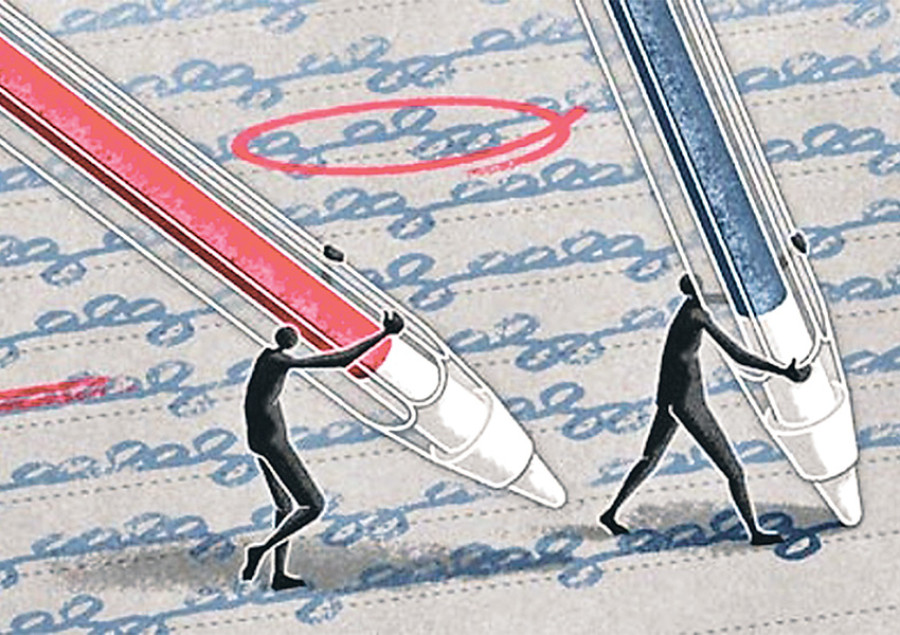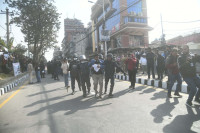Opinion
In the making
The draft constitution needs to be amended before implementation
Ananta Raj Luitel
Leaders who are currently busy finalising the constitution should bear in mind that they are dealing with the expectations of millions of people. The people want jobs, education, health, development; they want everything from the constitution. Those from marginalised groups want properity and easy access to state resources. They currently believe that their rights will be safeguarded through federalism. At times, it also seems as though the people want all of their rights to be included as fundamental rights in the constitution, even though some of the rights could be secured as legal rights in terms of practicality.
Long way to go
Responding to the demands of the people, the Constituent Assembly has already prepared a preliminary draft of the constitution comprising of 295 articles. The people have also duly submitted their suggestions and are waiting for them to be inserted in the final draft. The leaders are saying that they have been doing everything to meet the expectations. But in truth, it is simply not possible to include everything in the constitution.
Through its various provisions, the draft constitution has expressed its commitment to fulfil the demands and expectations of the public, especially in the fundamental rights and the principles of state and policies section of the constitution. However, the majority of the fundamental rights seem to be declaratory in nature. They will be activated only after the promulgation of relevant laws. The draft constitution states that the state shall bring such laws within three years of the promulgation of the statute. So it is certain that citizens will need to wait for at least three years before seeking a constitutional remedy through the Supreme Court even after the promulgation of the much-awaited constitution.
Indeed, as the constitution is the supreme law of the land, all the laws should be in harmony with it. So, after the statute is endorsed, the Supreme Court and Parliament will both need to move on to the enormous task of making all the existing laws compatible with the constitution, either by amendment or by interpretation.
Share of flaws
But the problem with the draft constitution is that it has been drafted like a political manifesto. Thereby, it has many problems in terms of democratic principles such as the independence of the judiciary, freedom of press and the fundamental rights of citizens. This is problematic because Nepal is a signatory of the United Nations charter and various other international instruments like the International Covenant on Civil and Political Rights and the International Covenant on Economic Social Rights, among others. Henceforth, it is compulsory for Nepal to abide by all these principles. Nepal is indeed obligated to develop customary constitutional principles with regards to theseparation of power and checks and balances.
The other significant concern is related to the functioning of the states as this will be Nepal’s first experience with federalism. There could be disputes between the different states and between the centre and the state as well. Keeping this in mind, the constitution mentions the creation of a separate court, Constitutional Court, to settle such disputes.
Due to the new forms of governance and state structure, new provision for the head of the state—associated duties and privileges—there might be new administrative and legal disputes after the promulgation of the constitution. Hence, the new constitution must include provisions to address such future challenges. The constitution also has provisions for a number of constitutional bodies. However, the functions and duties of the constitutional bodies it proposes like the National Natural Resources and Fiscal Commission, National Women Commission, National Inclusive Commission and National Dalit Commission might only be a duplication of currently existing constitutional bodies.
Key to success
A democratic constitution must respect the aspirations of the common people because the statute should be dedicated to securing their rights and liberties. In a democracy, the citizens have the right to demand whatever they want from their democratic government. Keeping all these things in mind, the Constituent Assembly needs to promulgate the constitution by respecting the spirit of the 2006 Jana Aandolan II, the universally accepted principles of justice and freedom of the people and human rights by accepting the suggestions made by the citizens in whatever way possible. If the draft constitution is promulgated without the major changes, it could be among the worst constitutions in the world, Henceforth, its success depends on the numerous amendments and judicial interpretations.
In conclusion, a constitution cannot be successful just by the principles it adopts. Its success rather depends on the good intention of the power players. Therefore, ensuring a fair political culture is of utmost importance along with the promulgation of the constitution. Otherwise, the vague new constitution, to be promulgated shortly, may meet the same fate as the previous seven constitutions Nepal has experimented with in the last seven decades.
Luitel is a lawyer




 15.12°C Kathmandu
15.12°C Kathmandu










